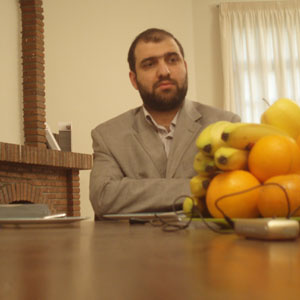The national unity government of Iraq follows abides by no country
MKO, a topic of talks between Maleki and Iran
An interview with Mohsen Hakim

The Iraqi Prime Minister Nuri Maleki has traveled to Tehran these weeks. According to international news agencies, the goal of Nuri Maleki’s visit to Tehran is to talk about the security pact between Baghdad and Washington. However, some other problems between Iran and Iraq exist that seem to be a part of Maleki’s negotiations with Iranian officials. Interview with Mohsen Hakim, political advisor to head of the Iraqi Coalition:
It is said that Maleki is visiting Tehran to explain the security pact. What is this explanation going to be about?
It doesn’t seem that Mr. Maleki is visiting Tehran to ’explain’ the security pact between Iraq and the United States. With the dynamic, developing relations of the two countries, and Iran’s position as a friend, brother and neighbor for the new Iraq, the national determination of Iraq is to upgrade the relations to a strategic level. More than 100 protocols have been signed during the past six years and geopolitical, civilizational and religious relations have determined the direction of political, security, cultural, intellectual and economic cooperation.
Iran has also been a major supporter of the new political process in Iraq. Therefore, the mutual visits of Iranian and Iraqi officials definitely bear significance. No week passes that officials of one country don’t meet each other and this demonstrates how deep the relations are. We hope the relations develop systematically.
But negotiations on the security pact had been done before and their not a major topic in this visit. The focus [in Iraq] is now on implementing the pact. The important thing now is that all Iraqi groups prepare for appropriate actualization of the pact. This visit can definitely set the ground for enhancing the relations and be a step forward. It is Mr. Maleki’s fourth visit to Tehran.
The new Iraq pays due attention to its neighbor and friend countries. Expansionist policies of the Baa’th regime have vanished and the Iraqi government tries to resolve the remaining problems through legal, friendly means so that we witness establishment of security across the region.
Why does Mr. Maleki feel obliged to explain domestic issues of Iraq, including the security pact, to Tehran?
Security is a broad, fluid concept that can’t be isolated. Iraq’s security is Iran’s security and region’s security and vice versa. It is natural that states of the region have frequent consultations and try to reach a collective conception of security. This can significantly help to establish genuine security in the region. Terrorist groups are now active in the region and the instability they create –though contained to a large extent- has its impact on the region, including Iran. Therefore, under a regional security system which can be a regional strategic pact, we must seek convergence and practical concordance in the region.
Many accuse Mr. Maleki’s government of being under Iran’s influence. Aren’t his frequent visits to Tehran confirming this claim?
There are many accusations. I think the national unity government of Iraq headed by Mr. Maleki isn’t under the influence of any country, but elected by the Iraqi nation. The Islamic republic of Iran has generally considered Iraq’s independence in its relations with Iraqi groups and has treated them with respect.
There is no need to answer these accusations. A free election was held in which all groups, including Shiites, Sunnis, and Kurds whether liberal, secular, democrat, Islamist or even communist participated and formed the Iraqi parliament. The national unity government consists of Shiites, Sunnis and Kurds. Such accusations intend to undermine the government and of course I don’t think they have any impact.
One of Iran’s concerns is Mujahedin Khalgh Organization (MKO) presence in Iraq. How will their story end?
That is not all the story. They [MKO] are also a cause of worry the Iraqi government and the Iraqi nation that consider them a terrorist organization. They should leave the Iraqi soil as soon as possible. Even the government doesn’t want to have any interactions with them. Any contacts with them continue only up to the time they leave Iraq.
What has the Iraqi government done to relieve international concerns about MKO’s conditions in Iraq?
A few days ago, Mr. Movafagh al-Rabi’ee, national security advisor of Iraq visited the Ashraf military base. He clearly reminded the leadership of the organization that firstly, they are recognized as a terrorist group by the Iraqi government based on Security Council resolutions, the Iraqi constitution, and decisions made by the government and parliament. Secondly, this organization has no right of political, cultural, economic and social activity. Thirdly, they have to leave Iraq as soon as possible. They must either return to Iran or a third country since the Iraqi government is not going to host them any more. Fourth, they are treated in a humane manner until they leave Iraq.
Therefore, all attempts are made to finalize this case sooner. This has been definitely one of the topics of negotiation between Mr. Maleki and the Iranian officials, though the Iraqi government will carry out the due activities since it gained control of the Ashraf Military site since the last Thursday.

